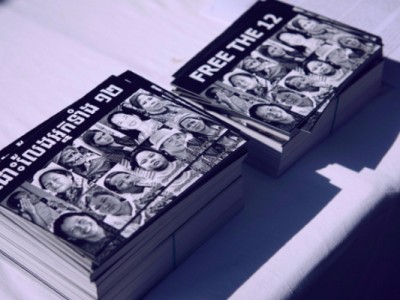
Likely the single most important element of advocacy is the messaging. In theory, you could be sitting on a computer in a space shuttle and foment revolution. But you’d need your computer—you’d need your words and the means to distribute them. Messaging is the chicken in your chicken soup.
It’s this core quality of messaging that makes content so inevitable. You’d be hard-pressed to find any community in any part of the world that does not bother with communal narratives—if they aren’t written then they are spoken, and if they’re not made up of words then they’re cave paintings. We need content to gel people together, and more specifically to convince each other to do things, or in other words, to advocate.
This is precisely why content in the realm of advocacy is essentially communal. It is essentially a two, or maybe five, or maybe 50 million, way street. This is exceedingly important for us to remember. As advocates, we are not advertising products and services—images and slogans blasting at people from billboards, TV and radio ads. We are communicating messages about collective issues. Nearly everyone that we want to reach has a vested interest in them. Expect to arouse feelings in people. Expect that this will result in a range of responses that aren’t necessarily pleasant.
I received a very important lesson only last summer, not as an advocate, but as a member of a campaign’s critical mass. It was the time of Lebanon’s trash crisis—our political class’s corrupt incompetence reached new heights and the country was caked in garbage, much of it biohazards. People took to the streets in droves behind a new grassroots campaign named #YouStink. There were hundreds of thousands of us. Men and women from all walks of life braved tear gas and water cannons, beatings and, at times, live fire. #YouStink convinced citizens that the system was rotten and the putrid smells had, quite literally, become intolerable. It was an intoxicating political moment because, for once, we had meaningfully and effectively transcended our seemingly permanent sectarian divides and were rallying around real economic and policy issues. It might be a stretch, but I truly believe that the movement whittled down to a sputtering train engine precisely when #YouStink turned that beautiful gathering of human beings into a one-way conversation, a berating lecture.
Without going into much detail, suffice to say that it was discovered that core members of #YouStink had questionable ties with outside actors. For a country like Lebanon—or really, for any country in the Global South—that has been tangled up in one too many foreign interest induced domestic turbulences, this raises resounding alarm. #YouStink could have put the accusations to rest, but instead anyone who dared to question the group’s ties was chalked up as a conspiracy theorist, a backward moron. As a result, people were silenced, but they also turned away.
To be sure, there were plenty of other factors that stood in the way of the movement. For one thing, if our prehistoric political leaders are good at one thing, it’s in hanging on tight to their seats of power. They employed many clever tactics to have the movement eventually arrive at a checkmate. This is a story that is eerily common, of course, across the Global South. What is also common to the Global South is that the citizens/residents have been through a great deal, they have seen the intricate wheeling and dealings of gangs and warlords and they have survived them. We have to respect them as such. They have the acumen to know who might be trustworthy and effective, and we have to work hard to gain that trust. I believe that with the #YouStink movement, the refusal to work on that trust when it was at its weakest was the final nail in the coffin of a beautiful movement. And I believe that we have a lot to learn from this.
In an advocacy campaign’s messaging, we ought to speak with and not to people. We have to show them that their interests and concerns are legitimate and that they are being brought into the fold of our campaign. Whereas we absolutely must draw the line at hate speech, racism, homophobia, sexism and the like, there is a great deal more within the boundaries of what we can tolerate to engage over. So, let’s take to the two-way streets from the very start.









